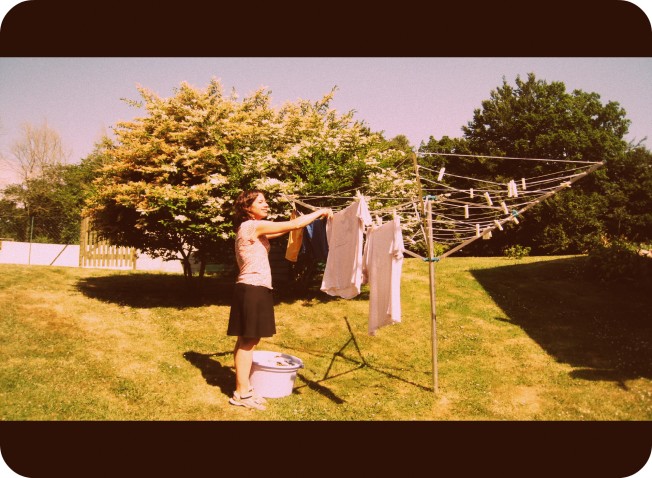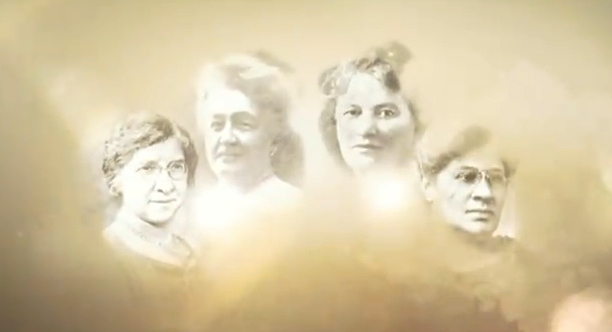It’s my first trip to Bluemercury. All the salesladies are too pretty–straight out of the pages of a glossy magazine. All the clients wear big diamonds. And lots of makeup. They all wear lots of perfectly applied, perfectly polished, perfectly perfect makeup, probably from Bluemercury.
In walks me.
Makeup-less. No diamond. Hair half-wet–it hasn’t seen a blowdryer or flat iron since the last time I went for a haircut. Eyebrows so-so: I have found a place to do them. A little mani/pedi place run by a Korean woman who says, “Yes, yes, yes, yes, yes, yes, yes, I know,” every time I try to tell her how I want my eyebrows done (but how does she know? I haven’t told her yet!). She’s cheap, but not great.
All these details I notice in the many mirrors that adorn Bluemercury. They add up to one thing: I don’t fit in here.
WHY am I in a chic little makeup store?
It began with an invitation for a campus visit. Campus visits, for those who aren’t familiar with this form of academic interview, involve affairs that last a day or two or more, where you eat, drink, and breathe the college you are hoping will hire you. You have coffee with the faculty. You give a talk about your research. Maybe give a mock class. Get questions about your talk and class. Endure the official “interview” phase of the interview, where the committee members and other interested faculty take aim and launch questions at you from the trenches. Then there’s lunch: more chatting with faculty, more questions. A campus tour. Along the way you might learn about things like salary and benefits, or you might have a meeting with a dean about them. You might meet with the provost. You might meet with graduate students, or undergraduate students, or both. Every sip of coffee and word you let pass your lips: they’re on trial. It can be exhilarating; it will be exhausting.
Before going on the interview, I knew I had to survey my materials. Of both kinds: the academic kind (practicing job talks, preparing answers to standard questions, reviewing the university’s website) so I can come across as smart and interesting, and the physical kind (suit, shoes, makeup) so I can come across as sophisticated.
The academic materials I readied in short order. As for the personal materials, I could use changes that are more than cosmetic. But alas, time is short. I’m not about to go for a Botox fix (“Are you angry?” Cool J frequently asks. Damn furrow). So I pick the flaw that requires the smallest solution–and what’s smaller than a tube of lipstick?
And that’s why I’m here. Yes, when Nancy Botwin said I was the lowest maintenance woman she’d ever met, she was probably right. What woman of a certain age, as I suppose I now am, does not own a lipstick?
The saleslady approaches me. I tell her I’m looking for a lipstick–and that’s it. She looks me over. “You have wonderful skin!” she declares. “You’re right. All you need is a lipstick. Have you tried Crazed by Chanel? Everyone is truly crazed about it.” I try Crazed. “It’s good!” she says. She’s right. It’s good. I head for the cash register.
“Wait!” she calls. “What’s the occasion?”
“An interview.”
“OH.”
“What?”
“Well, you don’t want to look–you know–dead at the interview, right?”
“That would be bad.”
“I just mean a little blush might help you look, well, more, um, alive.”
“How much is the blush?”
“$45.”
$45 for the blush that makes me look not dead. $34 for lipstick, which every woman should own. I hesitate. She finds an opening: “Listen, you have great skin, and you really barely need a thing. You have a mascara, right?” It’s old and clumpy. I nod yes. “And foundation?” I shake my head. She frowns. “Well, you really don’t need much foundation. A tinted cream would do the trick. A tinted cream would keep you hydrated and smooth out your skin. And give you SPF protection. It’s like three products for one” (but more like one product for the price of three). “A bit of tinted cream, a bit of eyeliner, mascara, blush, and Crazed. You’ll be perfect.”
Perfect.
I look at the blush. I look at my wallet. I open my mouth. I close it. I decide to be strong. I lengthen my spine and say, “I’ll take the lipstick. I mean, for now. Maybe I’ll come back for the blush.”
I am very proud of myself when I walk out only $34 poorer.
I head straight to CVS, where I buy Physicians Formula blush. It’s $5 and must be good since physicians clearly came up with the formula. I come home and try it on. It’s hot pink. I mean, hot pink. I wear it all day. No one tells me I look more alive. Then again, no one tells me I look dead (again).
Forget being a college prof–the next day I break out so badly I could probably walk into the high school across the street and get mistaken for the new kid in the freshman class. So much for coming across as sophisticated.

















